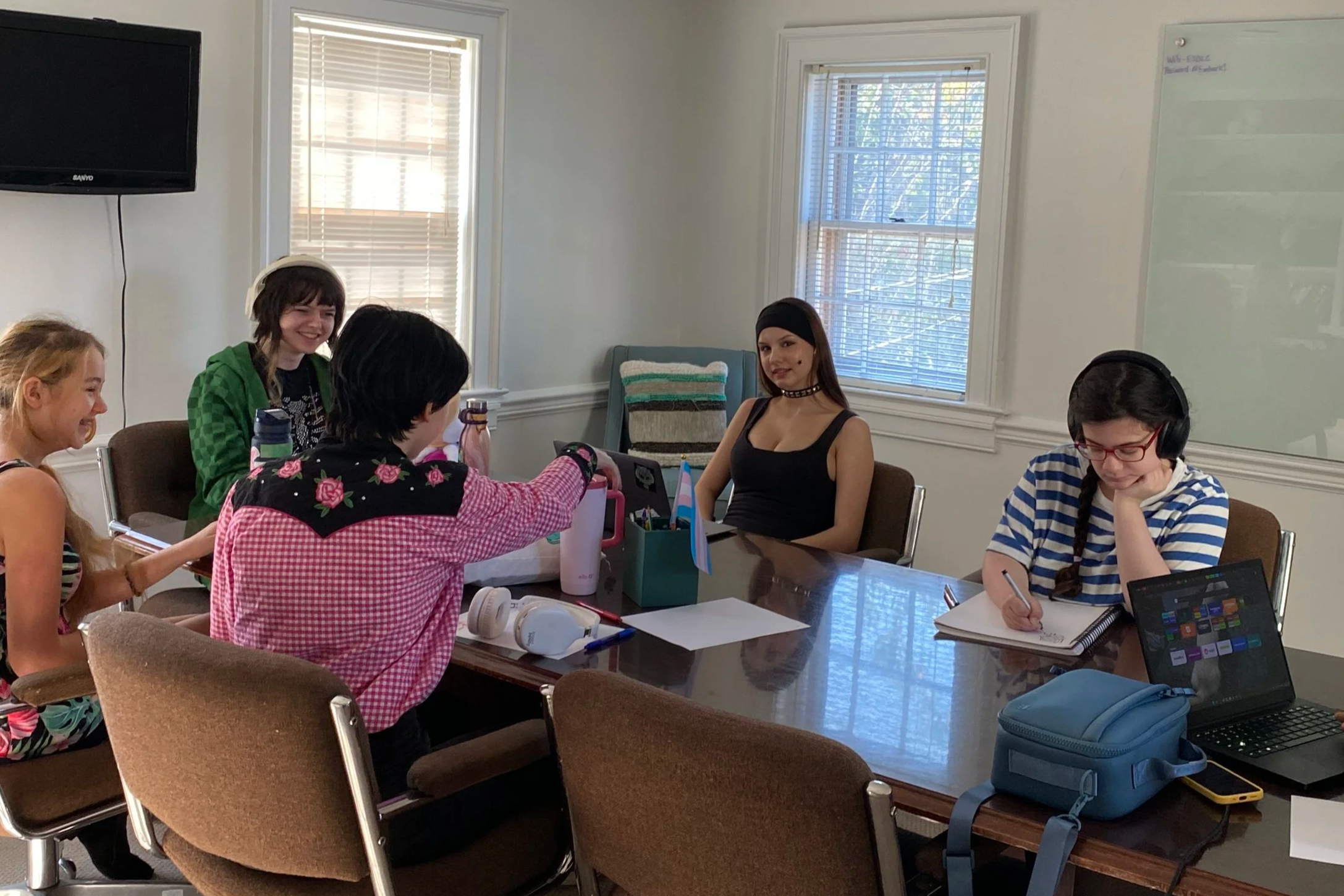Deschooling: A Parent’s Guide
When families first join Embark Center, it’s common for parents to arrive ready to “do school.” They’re eager to see their children sign up for classes, complete projects, and produce the familiar markers of academic progress. This is understandable—school has trained us all to equate learning with schedules, assignments, and external control. But stepping into self-directed education means something different. It means taking time to undo those ingrained patterns, to allow for genuine autonomy and self-discovery. This process is called deschooling.
What Is Deschooling? A Fresh Start for Families
Deschooling is the transition period between traditional schooling and self-directed learning. It’s not just for kids—it’s for parents, too. Children need time and space to unlearn the reliance on external authority and to rebuild trust in their own curiosity. Parents need time and space to unlearn the idea that learning is only real if it looks like school.
At Embark Center, deschooling is not an “optional step” before the real work begins. It is the real work. It is how young people begin to reclaim ownership of their time, choices, and direction.
The early stages of deschooling often look unfamiliar—and sometimes uncomfortable:
Unstructured time: Kids may not rush to fill their days with classes or obvious “academic” activities.
Decompression: Some children spend weeks or months simply resting, playing, or following seemingly random interests.
Learning boundaries: Without imposed structure, kids explore what it means to set and respect boundaries—their own and others’—in the context of living and working in community.
Open exploration: Interests can appear and disappear quickly, sometimes without tangible “results.” This kind of exploration is wide-ranging, experimental, and deeply valuable.
To parents conditioned by school to see productivity as worksheets and grades, this can feel alarming. But it’s not a sign that nothing is happening—it’s a sign that life is happening. Children are regaining the natural rhythms of curiosity, rest, and engagement that school often disrupts.
Why Measurement Creates a False Sense of Security
One of the biggest hurdles for parents in deschooling is letting go of the idea that learning—or people—can be measured. Schools use grades and test scores as shorthand for growth, but those numbers rarely reflect the depth of a child’s curiosity, the persistence it takes to master a skill, or the courage to try something new.
Measurement can give us a false sense of security, as though a chart or score proves that real learning is happening. But humans are not meant to be reduced to checkboxes, percentages, or levels. Growth is uneven, surprising, and deeply individual.
At Embark Center, we focus on trust, autonomy, and self-direction—qualities that cannot be captured in a spreadsheet. This echoes Ivan Illich’s classic Deschooling Society (read more at Infed), which challenged the very premise of institutional measurement in education. True learning shows up in a child’s ability to make choices, navigate relationships, solve problems, and follow a passion with depth and purpose. Those things don’t fit neatly into a measurement system—and that’s exactly the point.
How Parents Can Stay Calm During the Deschooling Process
The hardest part of deschooling is often not what our kids are doing, but how we feel about it. As parents, our own “school indoctrination” kicks in. We might think:
“Shouldn’t she be in a class right now?”
“Isn’t he wasting time?”
“What if they fall behind?”
“They’re just playing video games all day.”
These reactions are normal. But they are also echoes of a system we are choosing to leave behind. Our role is to notice these feelings, breathe through them, and resist the urge to re-impose school structures just to soothe our own anxiety.
Classes vs. Self-Discovery: The Real Priority at Embark
It may surprise new families to hear this: the classes are not the point. In fact, a full schedule of classes can actually get in the way of deschooling, because it feels familiar and safe. True self-directed learning asks us to step outside that comfort zone.
At Embark Center, our priority is not to fill students’ calendars but to hold space for self-discovery. That might mean learning how to structure their own time, experimenting with new interests, or even just getting comfortable with doing “nothing” until a spark of curiosity emerges. The goal isn’t to recreate school—it’s to grow a whole new relationship with learning.
Trusting the Journey: Homeschool and Unschooling Insights for Parents
Deschooling requires trust—trust in your child’s natural drive to learn, and trust in yourself to step back from controlling the process. It also requires community. At Embark, you’re not walking this road alone. Staff, mentors, and other families are here to share the journey, normalize the discomfort, and celebrate the breakthroughs when they come.
Deschooling isn’t easy, but it’s worth it. It’s the doorway to a life where your child is not managed into learning but chooses it for themselves. And that choice—made freely—is where the deepest, most lasting learning begins.
Further Reading on Deschooling & Self-Directed Education
Alliance for Self-Directed Education — Deschooling
Peter Gray, Ph.D. — Freedom to Learn blog (Psychology Today)
Alfie Kohn — “Schooling Beyond Measure”
Ivan Illich — Infed summary: Deschooling, conviviality, and lifelong learning

